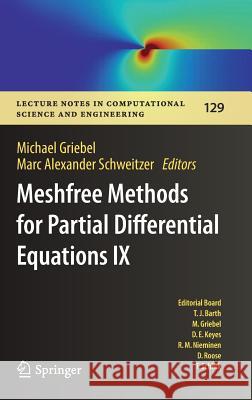Meshfree Methods for Partial Differential Equations IX » książka
topmenu
Meshfree Methods for Partial Differential Equations IX
ISBN-13: 9783030151188 / Angielski / Twarda / 2019 / 205 str.
Meshfree Methods for Partial Differential Equations IX
ISBN-13: 9783030151188 / Angielski / Twarda / 2019 / 205 str.
cena 201,24
(netto: 191,66 VAT: 5%)
Najniższa cena z 30 dni: 192,74
(netto: 191,66 VAT: 5%)
Najniższa cena z 30 dni: 192,74
Termin realizacji zamówienia:
ok. 16-18 dni roboczych.
ok. 16-18 dni roboczych.
Darmowa dostawa!
Kategorie:
Kategorie BISAC:
Wydawca:
Springer
Seria wydawnicza:
Język:
Angielski
ISBN-13:
9783030151188
Rok wydania:
2019
Wydanie:
2019
Ilość stron:
205
Oprawa:
Twarda
Wolumenów:
01











